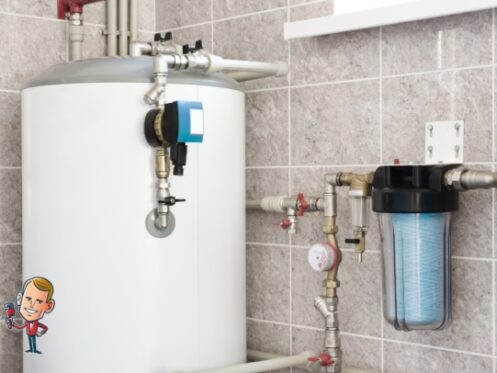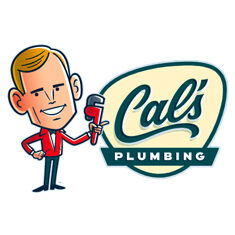The potential for water heaters to create safety issues in your home is obvious. When you combine water and electricity, there is a chance for things to turn dangerous. Water heaters that don’t rely on electricity run on gas, which provides their own list of potential safety issues. However, it’s important to note that as technology has advanced over the years, water heaters have become much safer than they used to be.
While most homeowners recognize that upgrading their appliances and home systems leads to more energy efficiency, there are also instances where doing so creates a safer place for you to live. If your water heater is outdated, you may be wondering if upgrading it would improve your home’s safety. Keep reading to discover the answer to that question.
The Known Dangers of Water Heaters
Generally speaking, residential tanked-water heaters are considered safe. Their safety features had a direct impact on their becoming the industry standard for decades. However, they’re not built to last forever. The average storage tank-style water heater has an expected lifespan of between eight and 10 years. Plenty of homes have water heaters that are older than that.
As is the case with any type of appliance in your home, an aging water heater is much more likely to experience issues than a new system. Unfortunately, many of those problems may pose a danger to your home. The most common type of problem these water heaters develop is leakage. Over time, the water, sediment, and other materials can wear out the tank. When water starts leaking out of the tank, into the wall around your water heater, and onto the floor, the results can be dangerous. When water leaks into the cracks between tiles or into drywall, it doesn’t take long for bacterial growth to start. Depending on the size of the leak in your water heater’s tank, it may take you a while to recognize the fact that you have a leak.
Leaky water heaters can eventually burst, flooding the space around them. And believe it or not, that’s probably the most fortunate outcome. In some cases, albeit rare, a burst water heater tank can produce an explosion that propels the tank upward with great force, destroying anything—and anyone—in its path.
Aging natural gas-powered water heaters can also develop issues that lead to dangerous gas leaks, which can trigger fires and explosions. Or, when a water heater’s burners malfunction with age, they may begin leaking harmful carbon monoxide into your home. This colorless, odorless gas can be fatal in large quantities, making this one of the most dangerous threats posed by an old water heater.
Design Changes in Newer Water Heaters
The good news is that unless your home’s water heater is extremely old, it likely has some design changes meant to mitigate some of the above dangers. In the early 2000s, water heater manufacturers faced a legal mandate to add certain safety features to their designs. Many of them revolved around the way they handled and burned the gas that powers them.
For one thing, modern water heaters now have sealed combustion chambers to keep natural gas and any combustion byproducts from escaping into a home. Plus, they include flame arrestor plates that work to stop the spread of fire from inside the burner to the outside of the unit. And as a safeguard of last resort, they also include a device that can detect the presence of flame outside of the combustion chamber and automatically cut off the gas supply to the system.
Together, the added safety features have made more recent water heaters far safer, particularly as they age. And they weren’t the only safety additions. Newer water heaters also include pressure relief valves meant to make tank bursting less likely. And the makeup of the materials used to build the tanks themselves has improved over the years, helping them to better resist corrosion and other effects of wear and tear.
The Rise of Tankless Water Heaters
It’s also worth pointing out that the last few years have brought another, safer water heating option to homes. Tankless water heaters, though not new, have made great strides in efficiency and capacity in recent years. That’s making them an ever more viable choice as a primary source of hot water in Tucson homes.
From a safety standpoint, tankless water heaters eliminate many of the most common failure points associated with storage-tank models. Since they don’t store any water, they’re less prone to leaks and there’s never any chance of them bursting as they age. Plus, they’re smaller and require less space around them to safely operate. That, and the fact that they also use the same sealed-burner designs as newer storage tank water heaters, means that tankless models offer a safety upgrade over any older water heater.
On top of all of that, tankless water heaters can last up to 20 years with proper maintenance. And they don’t become any more of a safety risk as they age, either.
So, Are Newer Water Heaters Safer?
The bottom line is that newer water heaters are safer than older ones in almost every case. This is especially true of storage tank-based water heaters. That’s both by design and by law. However, it’s important to note that many of the most important safety-related design changes started to appear in water heaters over 20 years ago, so unless you’ve managed to keep a very old water heater functioning all this time, yours likely already has all of them.
There is no denying the effect of age on a storage-tank water heater’s safety, though. Even the best-designed units will wear out over time and will require replacement sooner or later. For safety, it’s always a good idea to think about replacing your water heater before it gets any older than about 10 years, even if it’s not showing any outward signs of a problem. The types of issues that affect older water heaters aren’t always the kind that display warning signs. So by the time you know you have a problem, it may already be too late to avert the worst outcomes.
Consult the Water Heater Experts
If you think the time has come to replace your water heater, Cal’s Plumbing is the place to call. We’ve served the area since 1948, and have seen the safety and design changes of residential water heaters over time firsthand. That puts us in a unique position to help you gauge the safety of your existing water heater and to choose a suitable replacement for it. Our team of highly trained and experienced plumbers can handle your water heater replacement as well as any of your home’s other plumbing needs. We offer comprehensive plumbing services ranging from pipe installation and repiping to water filtration systems and drain cleaning, and everything in between.
So when you need a new, safer water heater for your Tuscon home, contact the experts at Cal’s Plumbing right away!





